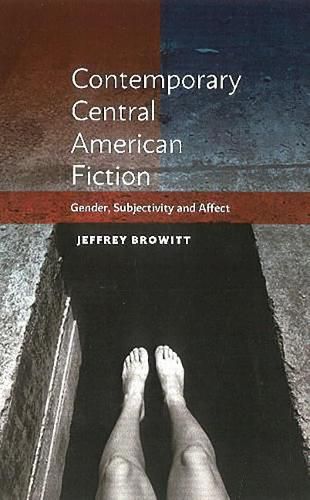Readings Newsletter
Become a Readings Member to make your shopping experience even easier.
Sign in or sign up for free!
You’re not far away from qualifying for FREE standard shipping within Australia
You’ve qualified for FREE standard shipping within Australia
The cart is loading…






This book is a series of original, critical meditations on short stories and novels from Central America between 1995 and 2016. During the Cold War, literary art in Central America, as in Latin America in general, was strongly over-determined by the politics of the Cold War, which gave rise to popular struggle and three major armed civil wars in the 1970s and 1980s in Nicaragua, El Salvador and Guatemala. The period produced intense literary activity with political ideology central, personified by social denunciation in the testimonial novel and revolutionary poetry. Since then, though themes of violence are still at much of its core, Central American fiction has become more complex. We have witnessed a resurgence of literary writing and criticism with a focus squarely on the artistic side of narrative art: writing aware of its own figurative manoeuvres and inventiveness, its philosophical and affective dimensions, and its carefully crafted syntax. This collection of essays by Jeffrey Browitt attempts to trace some of the contours of this new literature and the contemporary subjectivities of its writers through close readings of Guatemalas Rodrigo Rey Rosa, Eduardo Halfon and Denise Phe-Funchal; Nicaraguas Franz Galich and Sergio Ramirez; Belizes David Ruiz Puga; El Salvadors Jacinta Escudos and Claudia Hernandez; and Costa Ricas Carlos Cortes. Key themes are gender, subjectivity and affect as these intersect with the deconstruction of the family, hegemonic masculinity, motherhood, revolutionary romanticism, and the relationship of humans with animals.
$9.00 standard shipping within Australia
FREE standard shipping within Australia for orders over $100.00
Express & International shipping calculated at checkout
This book is a series of original, critical meditations on short stories and novels from Central America between 1995 and 2016. During the Cold War, literary art in Central America, as in Latin America in general, was strongly over-determined by the politics of the Cold War, which gave rise to popular struggle and three major armed civil wars in the 1970s and 1980s in Nicaragua, El Salvador and Guatemala. The period produced intense literary activity with political ideology central, personified by social denunciation in the testimonial novel and revolutionary poetry. Since then, though themes of violence are still at much of its core, Central American fiction has become more complex. We have witnessed a resurgence of literary writing and criticism with a focus squarely on the artistic side of narrative art: writing aware of its own figurative manoeuvres and inventiveness, its philosophical and affective dimensions, and its carefully crafted syntax. This collection of essays by Jeffrey Browitt attempts to trace some of the contours of this new literature and the contemporary subjectivities of its writers through close readings of Guatemalas Rodrigo Rey Rosa, Eduardo Halfon and Denise Phe-Funchal; Nicaraguas Franz Galich and Sergio Ramirez; Belizes David Ruiz Puga; El Salvadors Jacinta Escudos and Claudia Hernandez; and Costa Ricas Carlos Cortes. Key themes are gender, subjectivity and affect as these intersect with the deconstruction of the family, hegemonic masculinity, motherhood, revolutionary romanticism, and the relationship of humans with animals.